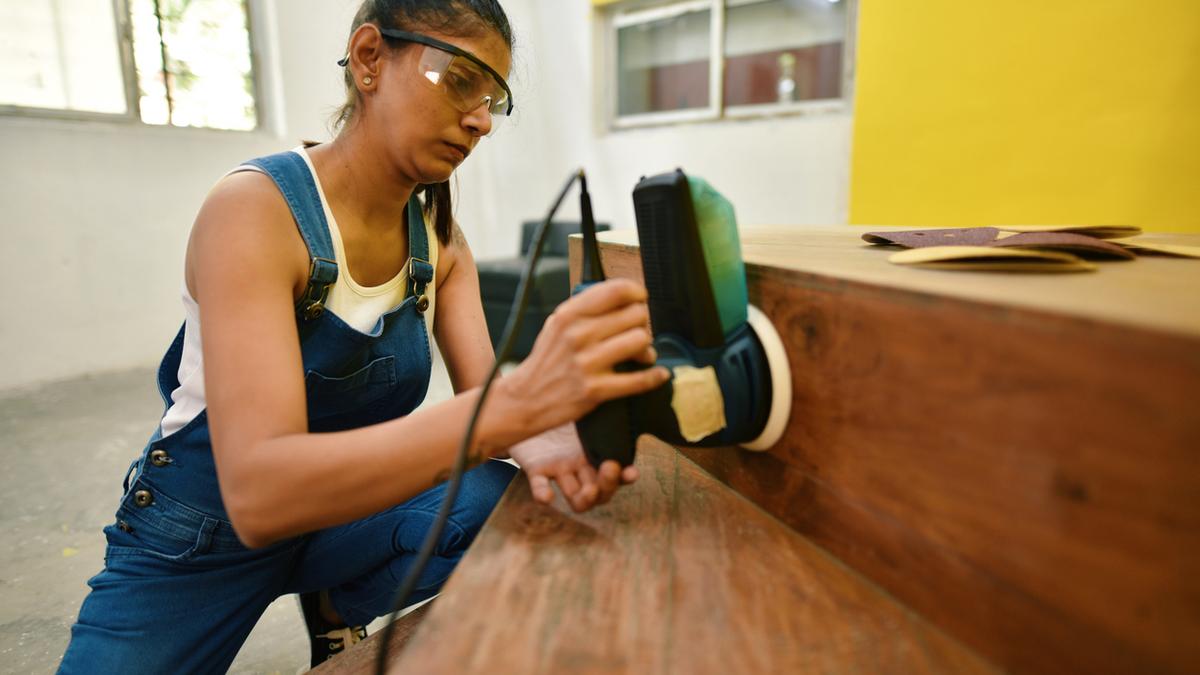Experts say soon blue-collar jobs like carpentry, electrical work, and plumbing, would be respected and pay more than white-collar jobs. | Photo: iStock/ Getty Images
In school classrooms across Tamil Nadu, the poetic verses of the Gandhian poet Ramalinga Pillai still continue to resonate. Known as Namakkal Kavignar, his lines: “kaithozhilil ondrai katrukol, kavalai unakkillai othukol” emphasise the importance of learning a vocational trade or craft, to ensure that one doesn’t have to worry about one’s livelihood. The lines encapsulate the present debate around vocational education in the country.
Push for vocational education
The push for vocational education in India dates back to the Kothari Commission, which submitted its report in 1966 — a time when India moved towards industrialisation, creating a demand for skilled and semi-skilled workers for the factories. The report introduced the 10+2+3 education system, allowing students to pursue vocational training in Industrial Training Institutes (ITI) and Polytechnic colleges after Class 10. The primary objective was to equip individuals with practical, hands-on skills, enabling them to contribute effectively to the workforce.
The National Education Policy (NEP) 2020, however, aims to take vocational education a step further by integrating it seamlessly into the school curriculum. It seeks to remove the rigid divide between vocational and formal education, creating alternative career pathways for students, including those who may drop out after school.
Unlike the previous education policies, the NEP introduced vocational training from pre-school to Class 12, allowing students to learn various vocational crafts such as carpentry, electrical work, metalwork, gardening, and pottery, based on the skilling needs of the state and the local community.
Experts believe that vocational education has the potential to transform India. They feel that inculcating students with various skills can address the skill gap in the market, reduce unemployment and create a more efficient workforce. “In today’s evolving job market, a strong foundation beyond traditional academics is essential, “ said Majella Philip, Founding Principal, Babaji Vidhyashram.
Challenges in implementation
Though there has been enthusiasm for vocational education in the country, experts say that the enthusiasm fizzled out when it came to its implementation. The implementation of vocational programmes has been dismal and disappointing over the years and they attribute it to many reasons.
One of the predominant reasons, experts cite, is the mindset in the country where vocational careers are considered inferior to white-collar jobs. “A notion has set in where only people who cannot academically excel will go to vocational education. Not many would be willing to send their children to vocational courses, said G. Balasubramaniam, Former Academic Director, Central Board of Secondary Education (CBSE).
Many feel that the country is still not equipped for vocational training. Despite things changing in the last few years, there is a lack of infrastructure, up-to-date curriculum and skilled teaching professionals for vocational education in the country. There are no adequate laboratories and equipment to conduct workshops and assess students. “If you are teaching vocational education on a blackboard, it’s just not worth doing it,” said Mr. Balasubramaniam.
There is also a need for onboarding skilled teaching professionals to teach the students. However, many do not come forward as they do not see it as a lucrative profession as it does not pay much.
Moreover, many students who complete vocational training do not get adequate opportunities to do internships or apprenticeships to gain experience. Similarly, the collaboration between the industry and the education system to develop vocational courses has been far few. Industries and other societal sectors have provided insufficient support, as their profit-driven focus has led to the perception that investing in these areas is neither valuable nor worthwhile.
The change needed
Many experts believe that only a change in the parental mindset regarding vocational education can improve the situation in the country because working with one’s hands does not carry much respect in our society. In the state of Tamil Nadu, the bone of contention of the NEP was not only the three-language formula but also the “vocationalisation” of education which the government felt would lead to caste-based professions similar to the Kula Kalvi Thittam brought in by the chief minister Rajaji in 1953.
Despite all this, Ms. Philip from Babaji Vidhyashram believes that parents can dispel the stigma around vocational courses. She feels that parents should actively engage in understanding the vocational opportunities available, helping their children make informed decisions about their career paths.
Jayaprakash Gandhi, a career consultant and analyst, seconds Ms. Philip’s opinion. He feels that the parents’ perspectives need to shift, as there is a big world beyond Engineering and Medicine. “There will emerge a big demand for blue-collar jobs like carpentry, electrical work, plumbing, and more in the country and they would be respected and paid more than white-collar jobs,” he said.
Published – March 12, 2025 07:59 pm IST
